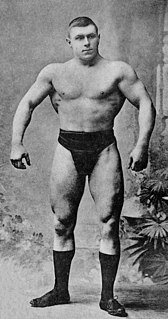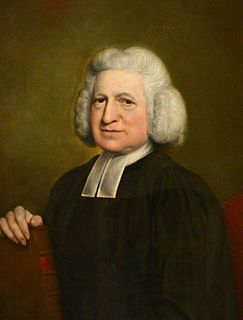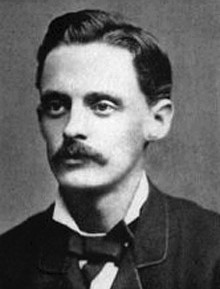A Quote by Carl Jung
One of the most difficult tasks men can perform, however much others may despise it, is the invention of good games.
Related Quotes
The most spiritual men, as the strongest, find their happiness where others would find their destruction: in the labyrinth, in hardness against themselves and others, in experiments. Their joy is self-conquest: asceticism becomes in them nature, need, and instinct. Difficult tasks are a privilege to them; to play with burdens that crush others, a recreation. Knowledge-a form of asceticism. They are the most venerable kind of man: that does not preclude their being the most cheerful and the kindliest.
...But we enjoyed playing games and were punished for them by men who played games themselves. However, grown-up games are known as 'business' and even though boys' games are much the same, they are punished for them by their elders. No one pities either the boys or the men, though surely we deserve pity, for I cannot believe that a good judge would approve of the beatings I received as a boy on the ground that my games delayed my progress in studying subjects which would enable me to play a less creditable game later in life.
Men may be very learned, and yet very miserable; it is easy to be a deep geometrician, or a sublime astronomer, but very difficult to be a good man. I esteem, therefore, the traveller who instructs the heart, but despise him who only indulges the imagination. A man who leaves home to mend himself and others, is a philosopher; but he who goes from country to country, guided by the blind impulse of curiosity, is only a vagabond.
The frequent employment of one's will power masters all organs of movement and trains them to perform feats which otherwise would have been difficult,painful and even impossible. The man becomes independent and self-reliant; he will never be a coward,and, when real danger threatens,he is the one who is looked up to by others. The knowledge of one's strength entails a real mastery over oneself; it breeds energy and courage,helps one over the most difficult tasks of life, and procures contentment and true enjoyment of living.
The Bible must be the invention either of good men or angels, bad men or devils, or of God. However, it was not written by good men, because good men would not tell lies by saying 'Thus saith the Lord;' it was not written by bad men because they would not write about doing good duty, while condemning sin, and themselves to hell; thus, it must be written by divine inspiration
It is not difficult to conceive, however, that for many reasons a man writes much better than he lives. For without entering into refined speculations, it may be shown much easier to design than to perform. A man proposes his schemes of life in a state of abstraction and disengagement, exempt from the enticements of hope, the solicitations of affection, the importunities of appetite, or the depressions of fear.
The Bible must be the invention of either good men or angels, bad men or devils, or of God. It could not be the invention of good men or angels, for they neither would or could make a book, and tell lies all the time they were writing it, saying, 'Thus saith the Lord,' when it was their own invention. It could not be the invention of bad men or devils, for they would not make a book which commands all duty, forbids all sin, and condemns their souls to hell for all eternity. Therefore, I draw this conclusion, that the Bible must be given by divine inspiration.
The Jews would not willingly tread upon the smallest piece of paper in their way, but took it up; for possibly, they say, the name of God may be on it. Though there was a little superstition in this, yet truly there is nothing but good religion in it, if we apply it to men. Trample not on any; there may be some work of grace there, that thou knowest not of. The name of God may be written upon that soul thou treadest on; it may be a soul that Christ thought so much of, as to give His precious blood for it; therefore despise it not.
The so-called ‘crank’ may be quite original in his ideas. … Invention, however, in the engineering sense involves originality; but not that alone, if the results are to be of value. There is imagination more or less fertile, but with it a knowledge of what has been done before, carried perhaps by the memory, together with a sense of the present or prospective needs in art or industry. Necessity is not always the mother of invention. It may be prevision.





































